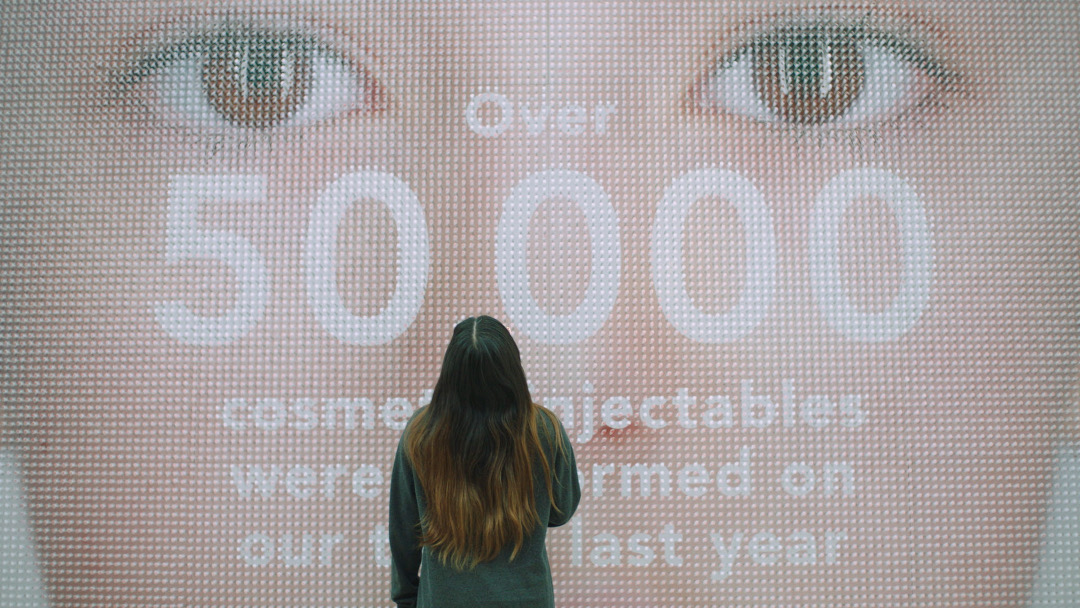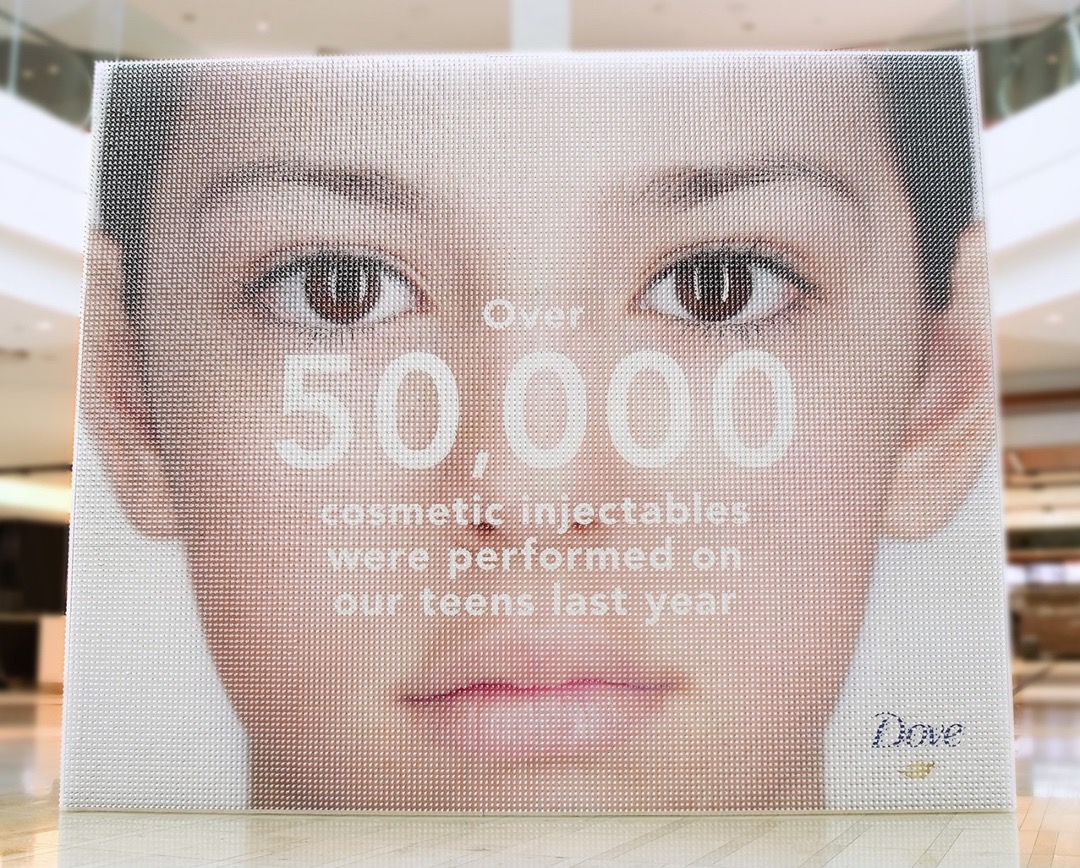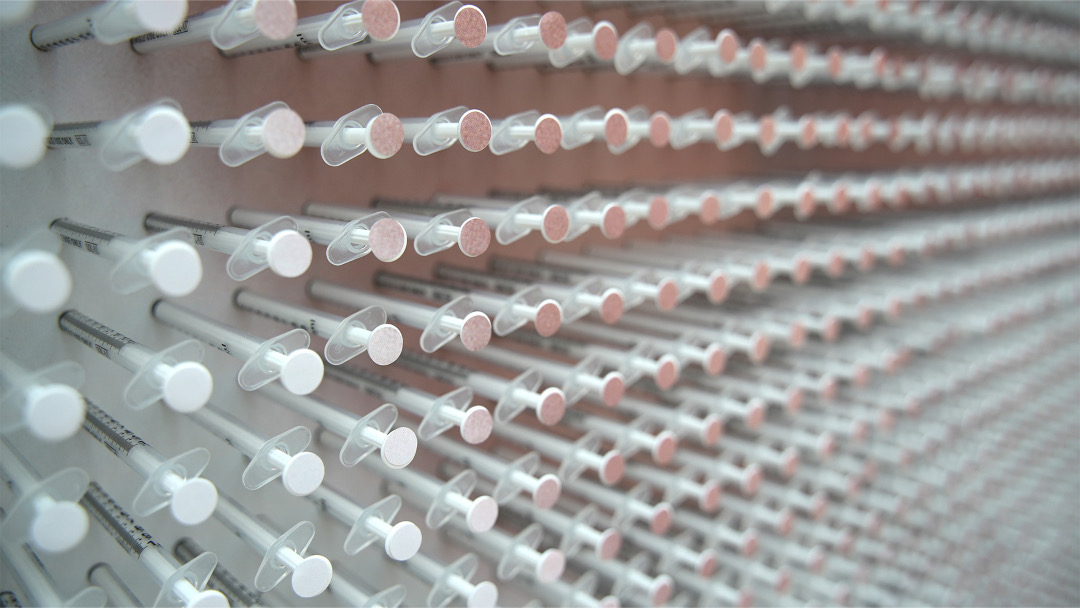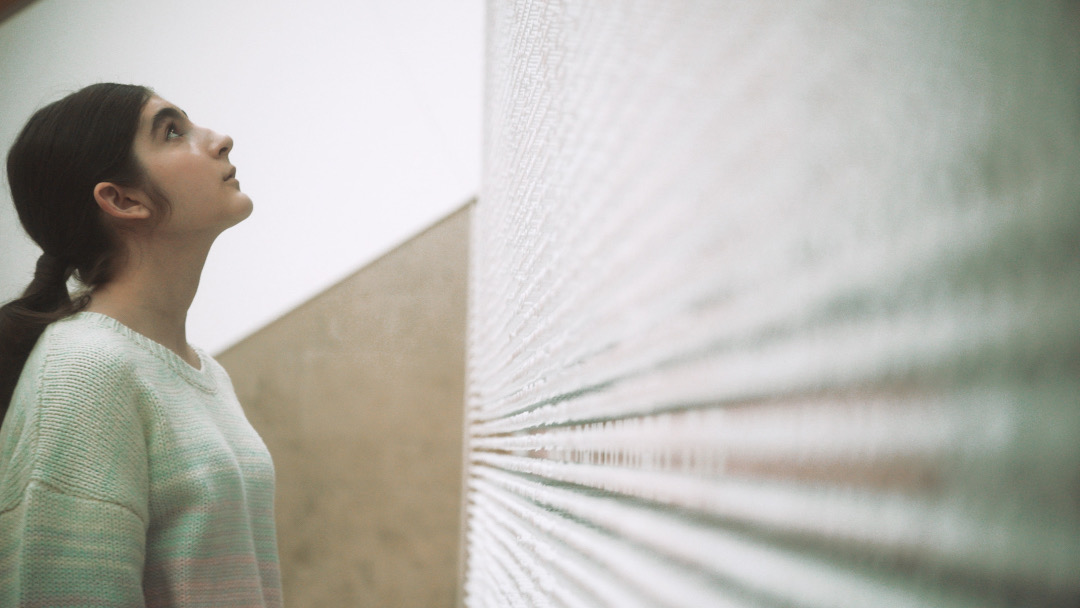Dove Creates ‘Injectable Billboard’ To Take Jab At Toxic Beauty Ideals For Teens
By Mikelle Leow, 07 Apr 2023

Image courtesy of Ogilvy Toronto / DAVID Miami
Injectable beauty treatments used to be seen as something for celebrities and the wealthy, but they’ve now penetrated the mainstream and, more worryingly, gotten under the skin of teenagers.
Dove, which embraces advertising to uproot systemic beauty expectations and tackle newer fads, is now addressing a growing trend of girls opting for “minimally invasive” cosmetic procedures with an Injectable Billboard. The 3D advertisement was set up at the Square One mall in Toronto, Canada, and was created by sister advertising agencies Ogilvy Toronto and DAVID Miami.

Fully decked out in syringes, the Injectable Billboard reflects the number of Canadian girls, aged 14 to 17, who have undergone injectable beauty treatments in the past year to meet unrealistic body standards they are exposed to on social media and from their surroundings.

Under the needles is the face of a girl, along with the text: “Over 50,000 cosmetic injectables were performed on our teens last year.”
Dove cites a 2023 study by consumer insights firm Vividata which found that more than 50,000 Canadian teens aged 14 to 17 have had cosmetic injections in the last year. 74% of girls surveyed said they wanted to change at least one thing about their looks, and 62% said they wished they could be more beautiful.
There is no age restriction for cosmetic fillers in Canada, though some clinics will apparently turn away patients who are under 18 years old or don’t have their parents by their side.
The Unilever-led personal care brand now wants to move the needle for the questionable normalization of injectables among young women as part of its ongoing Dove Self-Esteem Project to advocate for wider definitions of beauty. It calls upon parents to download its free Confidence Kit, which includes resources to help build up their kids’ confidence and nurture healthier online environments.

“This billboard represents the thousands of teenage girls who received a cosmetic injectable treatment over the last year—likely to fit into unrealistic beauty standards after being exposed to toxic beauty content on social media,” explains Rafa Donato, chief creative officer at DAVID Miami.
“Hopefully, this piece will ignite a conversation and lead to real action to minimize the types of harmful messages young people are exposed to daily that tells them they need to look a certain way to be beautiful."
[via Ogilvy Toronto / DAVID Miami, images courtesy]





